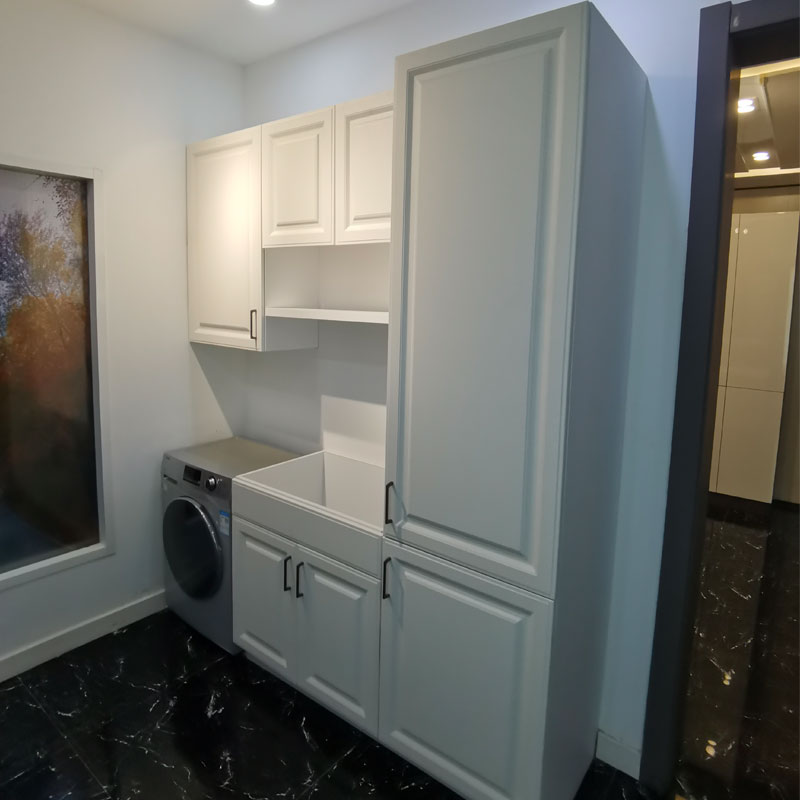What Makes a Laundry Room the Heart of Every Home?
2025-09-25
When people think about home design, spaces like the living room, bedroom, or kitchen often take center stage. Yet, there’s a hidden hub of functionality that impacts daily living more than most realize—the laundry room. Beyond washing clothes, this space organizes, stores, and creates efficiency within a household.
Why Is a Laundry Room More Than Just a Utility Space?
A laundry room is no longer just a corner with a washer and dryer. It has evolved into a multifunctional space that directly influences convenience, cleanliness, and even energy efficiency. Let’s look at why this space deserves serious attention:
-
Daily Household Efficiency
Families do laundry several times a week, sometimes daily. A well-designed laundry room reduces clutter, speeds up washing and drying cycles, and improves the flow of daily routines. -
Hygiene and Fabric Care
The right laundry setup ensures clothes are not only cleaned but also maintained. Proper water temperature controls, detergent compatibility, and ventilation systems all contribute to extending fabric life. -
Energy and Water Savings
Modern laundry appliances prioritize sustainability. Washers and dryers with optimized load sensors, energy ratings, and water-saving technology reduce utility bills while minimizing environmental impact. -
Added Storage and Organization
Cabinets, shelves, and built-in hampers make the room a secondary storage hub, preventing detergent spills in kitchens or clothing piles in bedrooms. -
Property Value Impact
In real estate, a functional and stylish laundry room can be a selling point. Buyers increasingly look for homes that blend practicality with design appeal.
A laundry room is, therefore, both a daily necessity and a long-term investment. But what exactly goes into its setup? That’s where product parameters come in.
What Are the Key Product Parameters in a Laundry Room?
To create a high-performance laundry room, it’s important to understand the specifications of the equipment and accessories that define its functionality. Below is a table summarizing the primary parameters that matter when choosing laundry room products:
| Component | Parameter | Why It Matters |
|---|---|---|
| Washing Machine | Load capacity (7–12 kg) | Determines how much laundry you can clean at once. |
| Energy rating (A+++ to D) | Impacts electricity consumption and efficiency. | |
| Spin speed (1200–1600 RPM) | Affects drying time and fabric care. | |
| Dryer | Heat pump or vented system | Heat pumps save energy; vented types are faster. |
| Drum size (7–10 kg) | Should align with washer capacity for balance. | |
| Sensor drying modes | Prevents over-drying and protects fabric. | |
| Sink/Utility Basin | Material (stainless/ceramic) | Stainless steel offers durability and resistance. |
| Storage Cabinets | Material (MDF, plywood, steel) | Influences longevity and moisture resistance. |
| Ventilation | Exhaust capacity (CFM rating) | Ensures proper air circulation and prevents mold. |
| Lighting | LED energy-efficient fixtures | Improves visibility and reduces energy bills. |
Understanding these technical details ensures that homeowners select the right mix of appliances and accessories. The result is a system where every piece of equipment works in harmony to optimize performance.
How Can You Transform a Laundry Room Into a Functional Design Space?
A laundry room may be practical, but it also has aesthetic potential. By combining design strategies with functional choices, homeowners can create a space that feels purposeful and inviting.
1. Layout and Workflow
The classic work triangle (washer, dryer, sink) ensures smooth workflow. Placing appliances side by side or stacking them vertically saves space in compact rooms, while U-shaped layouts benefit larger homes.
2. Storage Solutions
Smart storage reduces clutter:
-
Overhead cabinets for detergents and cleaning products.
-
Pull-out hampers for separating whites, colors, and delicates.
-
Open shelving for towels and linens.
3. Surface Areas
Countertops above front-loading washers and dryers provide folding space. Durable materials like quartz or laminate resist water damage.
4. Ventilation and Moisture Control
Moisture buildup can ruin fabrics and cabinetry. Installing proper exhaust fans, vents, and moisture-resistant finishes prevents long-term damage.
5. Multipurpose Features
Many homeowners integrate ironing stations, sewing kits, or even pet washing corners into laundry rooms, maximizing functionality without wasting space.
6. Lighting and Ambience
LED panels or under-cabinet lights improve visibility. Warm tones make the room more inviting, while bright white light ensures stain visibility.
By focusing on these factors, a laundry room becomes more than a utility—it evolves into a space of convenience and comfort.
What Are the Most Common Questions About Laundry Rooms?
To provide additional clarity, here are three frequently asked questions homeowners often raise about laundry rooms:
Q1: How do I choose the right washer and dryer for my laundry room?
A1: Consider the available space, load requirements, and energy ratings. For smaller homes, compact front-loading units or stackable sets save space, while larger households benefit from high-capacity machines with sensor technology.
Q2: Why is ventilation important in a laundry room?
A2: Proper ventilation prevents mold, mildew, and humidity buildup. It also improves air quality and ensures dryers operate efficiently without overheating.
Q3: What’s the best way to keep a laundry room organized?
A3: Use labeled baskets for sorting, built-in cabinetry for storage, and wall-mounted racks for hanging clothes. Organization reduces clutter and makes laundry tasks more efficient.
Why Choose the Right Brand for Your Laundry Room?
A laundry room isn’t just a space where clothes are washed—it’s a productivity hub that impacts daily living, home hygiene, and even property value. By understanding what parameters to consider, how to design for efficiency, and why proper equipment matters, homeowners can create a space that enhances both functionality and comfort.
For those who value durability, energy efficiency, and thoughtful design, choosing the right products makes all the difference. That’s where SINOAH stands out, offering solutions that blend technical precision with long-lasting performance. If you’re ready to transform your laundry room into a well-equipped, efficient, and stylish space, contact us today to discover how our products can redefine your home’s functionality.



